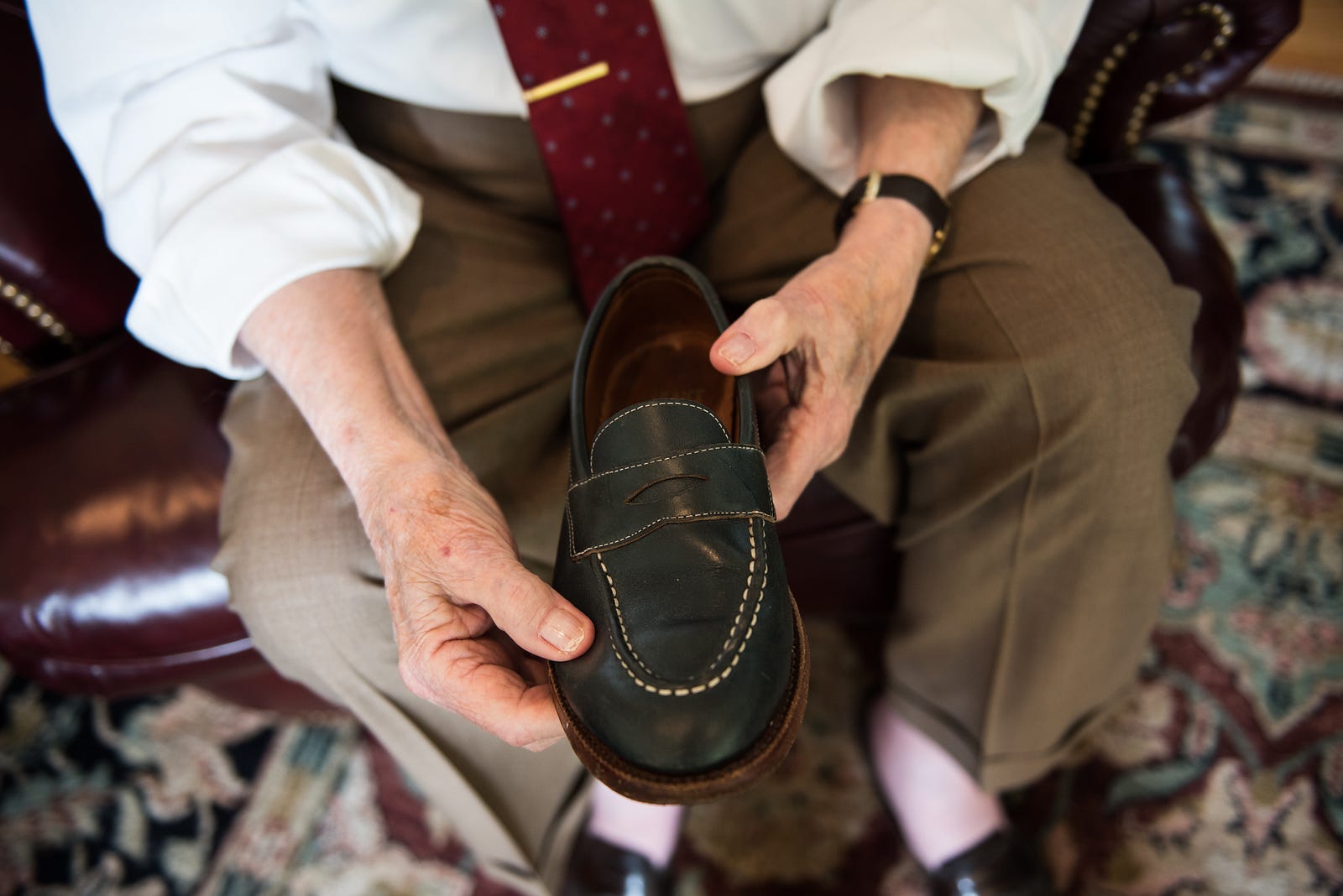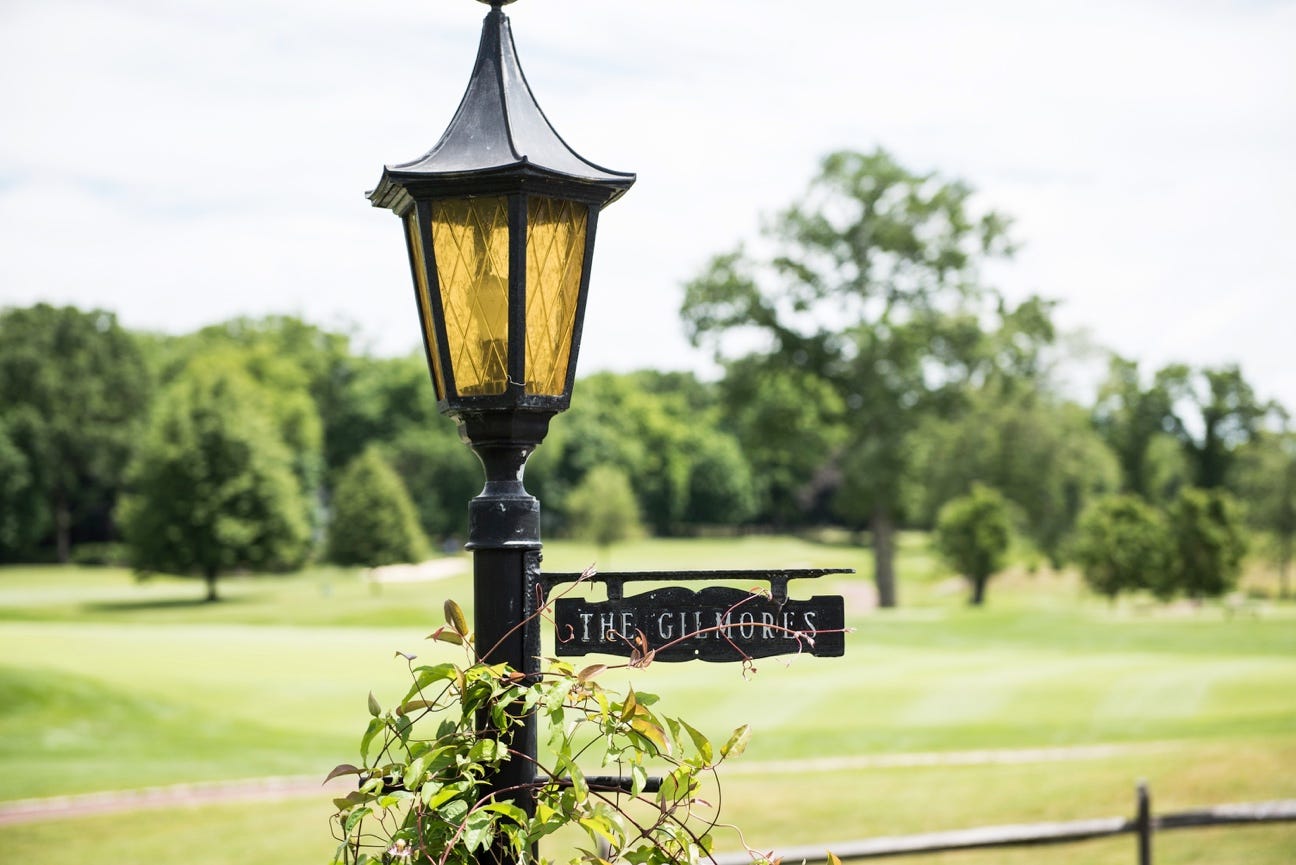I sat down with our Founder & Director Wyatt Gilmore's grandfather, Floyd Gilmore, to hear why after sixty two years, he's still dreaming of shoes.
From the carrier to the stockroom
Mr. Floyd Gilmore’s storied footwear career began in an unexpected place — the U.S. Navy.
Mr. Gilmore joined the Navy like five of his older brothers. He was seventeen, just shy of finishing high school in Birmingham, Alabama. He loved airplanes but without a high school degree, couldn’t join the Air Force. Fortunately, he was placed on Naval aircraft carriers along with his older brother Johnny, and that is where this story begins.
"I was always in what seems like the shoe business. Aboard both of the carriers I was on in the Navy, I was in the aviation supply department. I was in charge of fitting the aviation gear, jackets, and shoes for the flight deck sailors.
I used to tell the flight deck sailors, and anyone on deck, they had to wear a special shoe, a non-slip sole, on account of the rain."
Paying attention to critical details like this showed Mr. Gilmore the importance of function in designing footwear (and any gear) – an insight that would inform countless patterns and production units throughout his career to follow.

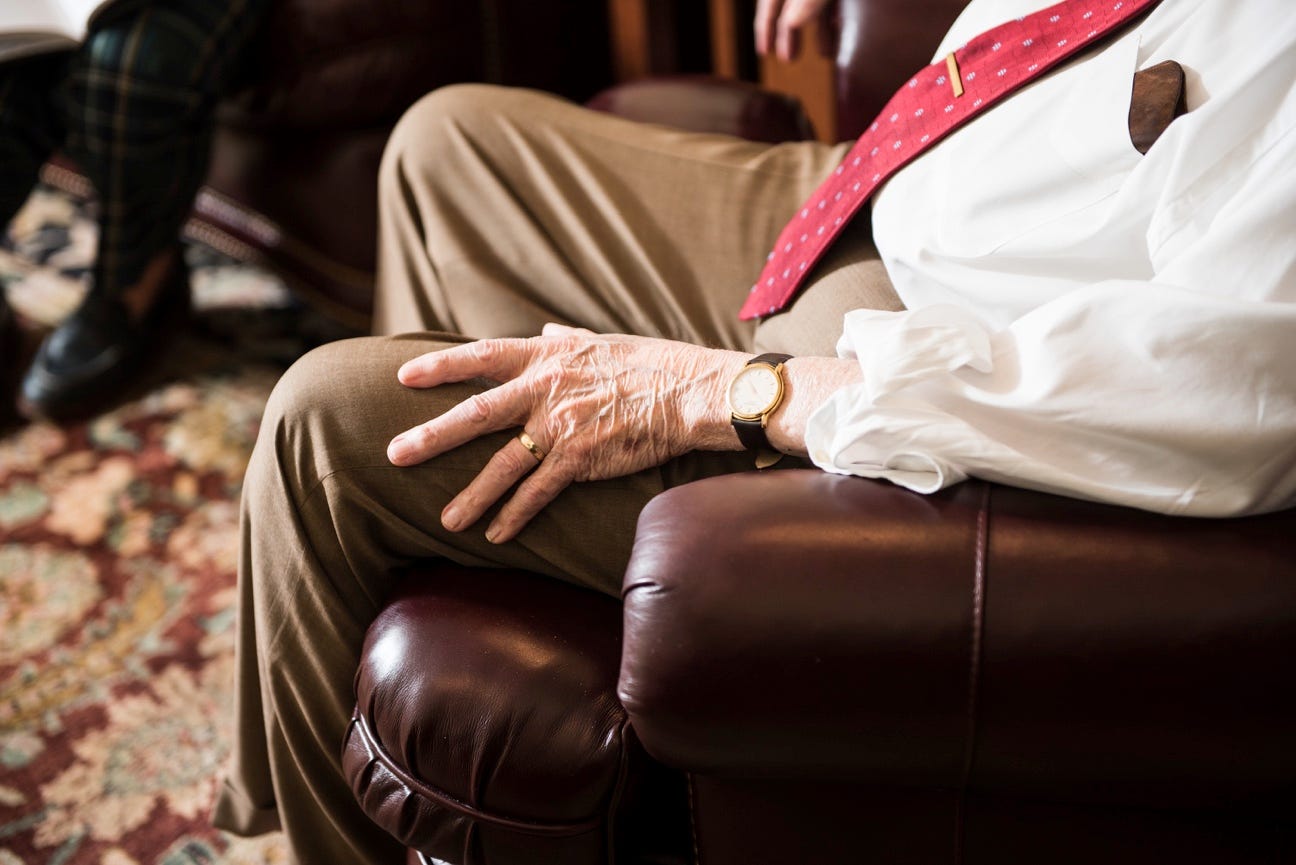 After the Korean War ended in 1953, Mr. Gilmore returned to Alabama, ninety miles south, to Montgomery. That very same year, met and married the love of his life, Clara. They met at “Buddy’s Club” — a lively dancing spot for young men and women. (She told her parents she was “going shopping” with a friend.) They hit the dance floor and clicked instantly. Clara and her twin sister used to dance for the servicemen — she exudes vivacity and spunk to this day.
After the Korean War ended in 1953, Mr. Gilmore returned to Alabama, ninety miles south, to Montgomery. That very same year, met and married the love of his life, Clara. They met at “Buddy’s Club” — a lively dancing spot for young men and women. (She told her parents she was “going shopping” with a friend.) They hit the dance floor and clicked instantly. Clara and her twin sister used to dance for the servicemen — she exudes vivacity and spunk to this day.
"Then I got out, while I was still on vacation after [the service] I met Clara and married her back in 1953. I was twenty.
Clara is the reason we are here!"
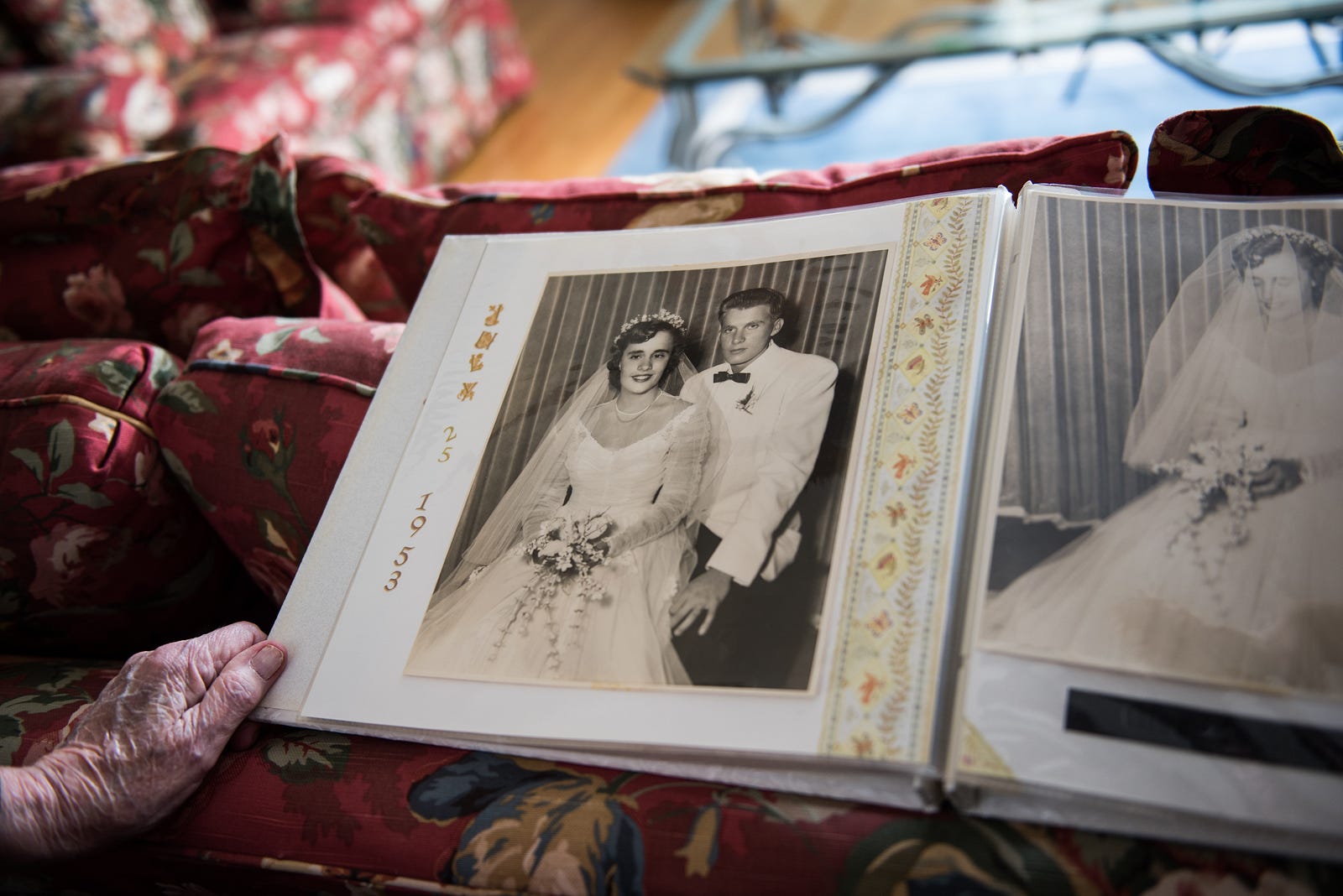
In Montgomery, Mr. Gilmore worked for the J.C. Penney Company. He shortly transferred to their Boston Commons location, where he was an Assistant Buyer, or as he calls it, a “glorified stockboy.” One day, a sharp salesman showed up out of the blue to take Mr. Gilmore to lunch. This gentleman, Arthur Tarlow, Sr., had heard of the J.C. Penney “stockboy’’ and this lunch was in fact a mission to recruit him for the Alden Shoe Company, the Tarlow family’s booming American orthopedic shoe business. Mr. Gilmore accepted the lunch offer, then the job offer, and never left — that fateful meal launched a sixty-year career, the company’s longest-running span to this day. Mr. Tarlow, ten years his senior, became a lifelong mentor and friend.
Between the time Mr. Gilmore joined in 1957, to his retirement at age 84 in 2017, the Alden business expanded beyond orthopedics to become known as one of the most recognized dress shoe brands made in America. Mr. Gilmore’s role shifted over time and encompassed a piece of each division, from product design to traveling trunk shows. Mrs. Gilmore and their tight-knit family remained a constant throughout his impressive trajectory, and his knack for footwear carried on to his son Randy and now his grandson, Wyatt (the founder of Grant Stone).
I got to hear how his company transitioned from speciality to traditional footwear, and sought Mr. Gilmore's sage advice for what it takes to run a successful footwear business in today’s changing landscape.
From the factory to the open road
How did your work in specialty footwear, particularly Goodyear-welt footwear, begin?
After joining Mr. Tarlow, I spent the first one and half years in the factory, the “plant” in Massachusetts just learning shoemaking. Last, foot shapes, materials, how it’s all made. This was the company “makeup program” that taught us about designing shoes.
The business strategy was highly focused on orthopedics but went “traditional” after many years. We had to know everything about the foot, building a last [sole shape], the irregular shapes — how to fit feet.
Shoes had to help fix foot problems.
Orthopedics were our specialty. We designed for tough feet, bunions, contracted, high arches, flat feet — each issue resulted in a “program” with a last to fit the irregular shapes. We’d take these programs and work with accounts to bring them to customers in need of a better footwear solution. We went to the Podiatrist Convention twice a year. We’d call on doctors. These programs were very well received.
So, at 24, I was on the road. Went on to cover twenty states in Northeast and Midwest territories. After a while, the orthopedic business slowed down. Our customers wanted a certain look and we wanted to meet that. We kept the lasts we had created for use in our traditional shoes. We went on to hold the title for the #1 traditional shoe in the world. Arthur [Tarlow], Sr. created the original fat tassel loafer!
We also started doing children’s specialty fits — kids wanted to wear sneakers because these traditional shoes were “ugly” and they wanted to look like the other kids.
When I was a kid, we used cardboard to cover the holes in our shoes. We always walked to school, it was all dirt roads. Walked barefoot. My mama made me put my sneakers on, but when I got out of the sight of the house through the woods, I’d take them off and put the strings across my shoulder and go barefoot. All the kids went barefoot.
I had the pair of sneakers [passed down] from my brother, but I don’t like sneakers. I like shoes. I like leather.
Tell me, why is that? We are seeing a big trend for sneakers and athletic shoe styles, even to work, even when they are not playing a functioning role. Not just for kids but for all ages. Is it for comfort?
You get better support from leather.
If we sold pairs of GYW shoes at the rate of the sneaker industry, we couldn’t make enough of them. Men are funny like that. They [also] like to have something for a long time. They want to remodel them, resole them, re-patch them…which you can with a welt shoe. You can’t with another shoe hardly at all, they fall apart.
Sneakers wear out quickly and the styles are always changing.
It’s also difficult to make women’s shoes. Women have different ideas, different opinions about the looks. Most women don’t like the look— it’s like a man’s shoe. But to me it's so comfortable. I had all my girls [three daughters] wear the same shoe.
How do we get more people to know about the benefits of quality GYW shoes, made from leather of course?
Knowledge. More people wearing them.
The #1 most important part is the insole. Leather means it breathes well. Rubber doesn’t breathe, cushion provides no support. The key is in fitting foot shapes. Goodyear-welt means quality. Strong, comfortable, made up of top component parts which also makes them repairable, resoleable.
I’ve seen so much on both ends and I know Wyatt does it right, and he’s gotta just do more of it.
Leather does seem to stand the test of time in durability and in style. What is your dream shoe?
Dream shoe? I’m wearing it. [Brooks Brothers unlined shell cordovan loafer, cigar color.] Hand-sewn welt. Hand sewn is the stitching on the vamp on the top of the shoes.
These can be worn barefoot, but I only wear them that way in casual settings. Barefoot is not proper [for work or calling on clients]. I haven’t worn boots since I left the service. They rub my ankles the wrong way.
This shoe, we started off with a big account in New York City. It was my account, but my boss went in with me to see Tim Sullivan — that’s the buyer — and we went and talked about something else. We walked out of the store, onto Madison Avenue, and I said “Hey! We forgot to show them the shoe! The unlined shell cordovan loafer.” We went back in and he bought quite a few hundreds of pairs that day. This account was in charge of fifty-three stores of that one chain.
Whether calling on customers or relaxing on his home turf, this unlined penny loafer is the pattern of shoe Floyd wears most often, and always has. His absolute swear-by, “Without a question,” he states.
What are these made of?
Shell cordovan. Made from the horse’s rump hide. This article comes from Horween in Chicago.

From growing a career to growing a family
You were traveling a lot for work. What was your favorite city to spend time in?
Manhattan. Highest volume, finest shops.
Looking back at your accounts, the successful stores you used to sell to, what did they do to be so successful?
We worked with specialty stores. We never sold into department stores — they like fast merchandise. My shoes were expensive at the time and it was out of their budget.
When he started, the cost of Horween leather had just jumped and the price for shoes was $30 per pair. Now these same styles go for over $700 a pair.
Work brought him across the U.S., to San Francisco, Las Vegas, Florida. Trunk shows and customer visits. This kept him away from his family…fortunately, Mrs. Gilmore was holding down the fort at home. Family was always part of the equation.
Mr. Gilmore grew up in a family of fifteen kids, working on a farm in Birmingham. He was the youngest of ten brothers, with five sisters.
What’s the secret to balancing life and work like that?
Mrs. G.: We’re all really close. Nine grandchildren and nine great-grandchildren, it’s a lot.
Mr. G: Not really. My mom and dad, I thought I was going to beat them but never did. Thirty or forty grandkids. We have four kids – one boy, three beautiful girls.
Mrs. G: Who can raise fifteen kids today? Nobody! [She laughs.] A lot of people can’t afford college today. Family is the most important. We all keep in touch with each other, call each other often, daily. Happy family.
Mr. G: I work for Clara.
Clara ran the books, tracking inventory and sales. Floyd once bought a shoe store for Clara and their son Randy after he graduated college. It was a brace shop in Bridgeport, CT. They eventually sold the shop and Randy worked for Alden until 1994 when he left to work in footwear factories in China.
The Gilmores recently celebrated sixty-six years of marriage this July. Family is everything to them. Mr. Gilmore drills it home:
Clara is my right arm, my left arm, the reason we are here.
One year, for her 75th surprise birthday party, I called them all up. Michigan, wherever they were. “Grandma’s gonna have her 75th birthday party next year, I’m giving you a year notice, and if you’re not there, you’ll never get anything from me in my will, so you better be there.” I said that. To all of them.
They were all there.
I was teasing them, but they knew to come.
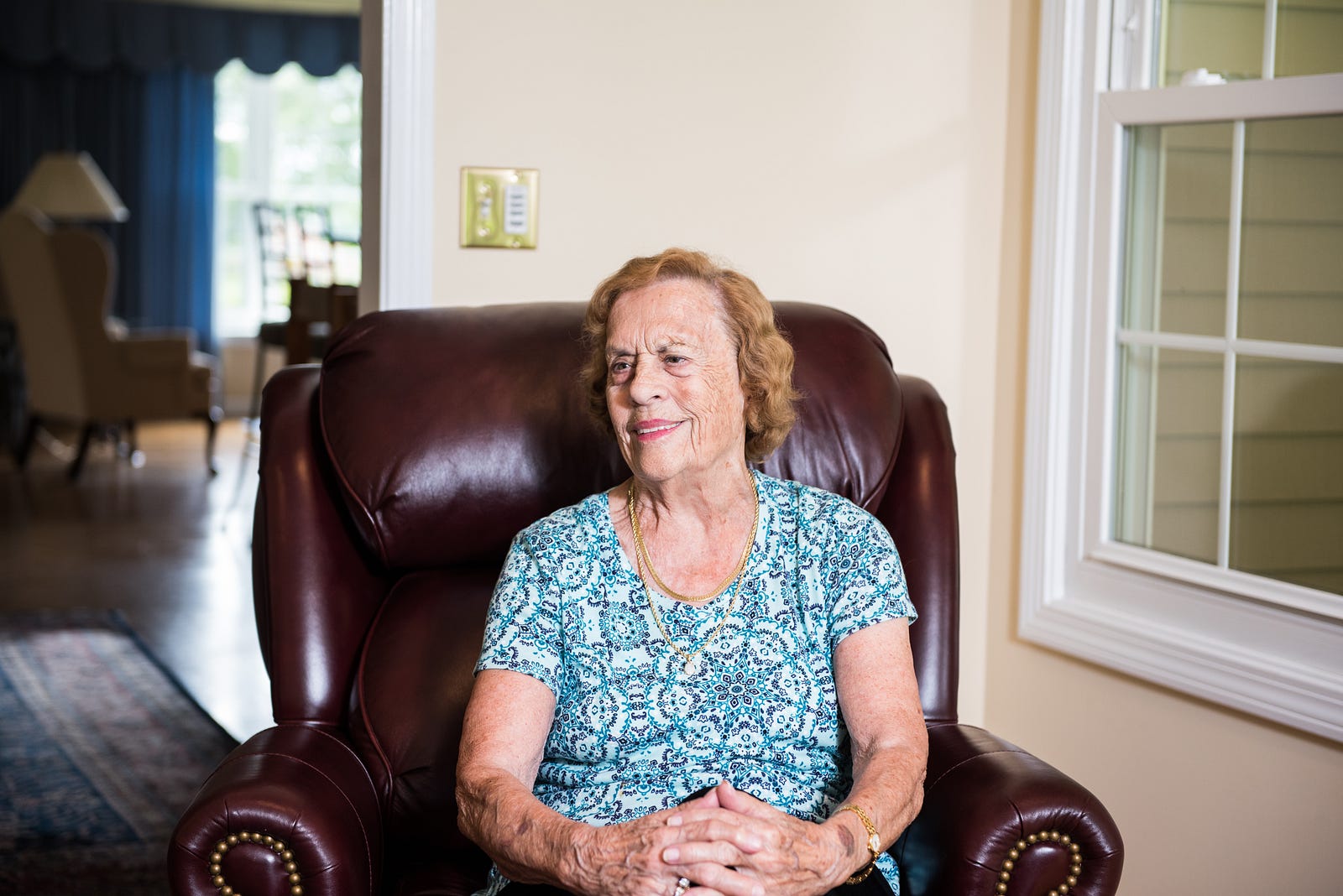
The Real Grant Stone
I hear you knew Grant Stone personally, and your son Randy did as well. Some people think he works for us, other people don’t know if he was ever a real person. Tell us, who is this mysterious Grant Stone?
Grant Stone. He was a perfect gentleman. Never swore in his life.
My son (Randy) met Mr. Stone and liked that name, he has a son named Grant. He registered the name, years ago.
If you had to give Grant Stone (the company) one piece of advice, what would it be?
You can keep a lucrative business just by making Goodyear-welt that fits well.
Do it right, do more of it.
I like the shoe industry and I said to Wyatt, “I want the fourth and fifth generations to be in the shoe business." And I said, far as whom in the Gilmore family, it’s gotta be Emma. [Wyatt and Lulu’s daughter, who turned 1 this month!] She should work for you, when she gets the time out of high school, and learn the business. Girls have a different opinion and look for shoes, and it will probably help you! Emma can learn that, you can teach her. And keep going.
I saw that all my life with my company, with my colleagues, their children. That’s life.
If I could get back into the business again, I would work for Wyatt in any capacity. He’s a sharp-kid, level-headed.
What it's all about
We started talking about the future of work – automation, shifting roles and perceptions. I can tell work ethic is an important value for him and his son and grandson, all of the Gilmore family really. Clara thinks all the time now about the loss of jobs to machines and technology—for example, greeters and the “do-your-own-checkout” machines. She wonders how people will pay to send their kids to college.
Floyd counters, saying
"I say if you want to work, you can work. Most people don’t care to work.
Work was my life. I cannot not work. And that’s why I hate retirement."

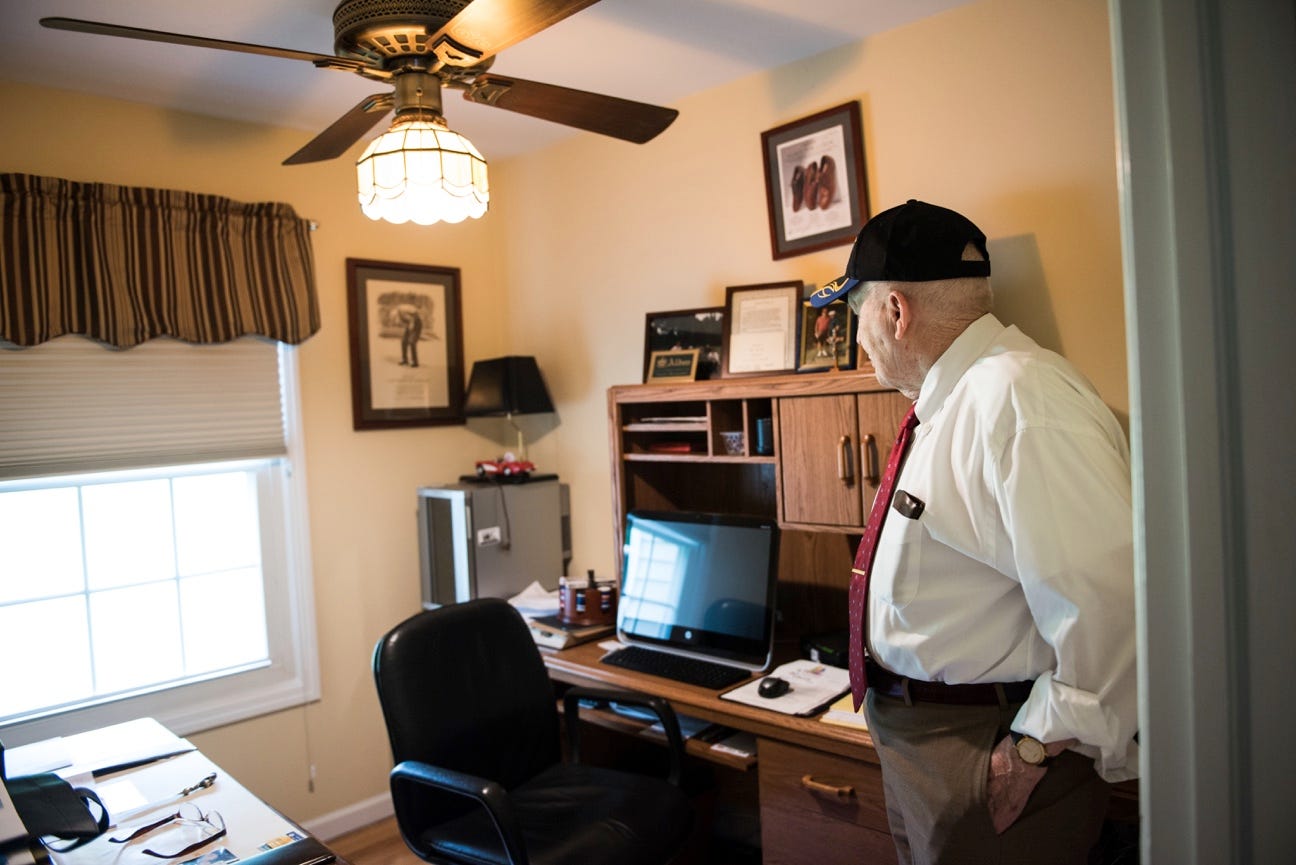
Tell us more about life today. You had a storied career! You retired in August 2017 after 60 years. You’re still close with your family. How would you describe retirement?
Boring. I miss work, I do like to work, I like helping clients. But I stay busy. With family. Still have calls with shoe industry folks, to give ideas and design feedback.
I dream shoes every night. About making them. It’s been a great career, Thank God I met that man [Arthur Tarlow, Sr.] back when I did. 1957.
We are very, very happy with our children, and our grandkids, and great-grandkids. We talk every day. That’s what it’s all about.
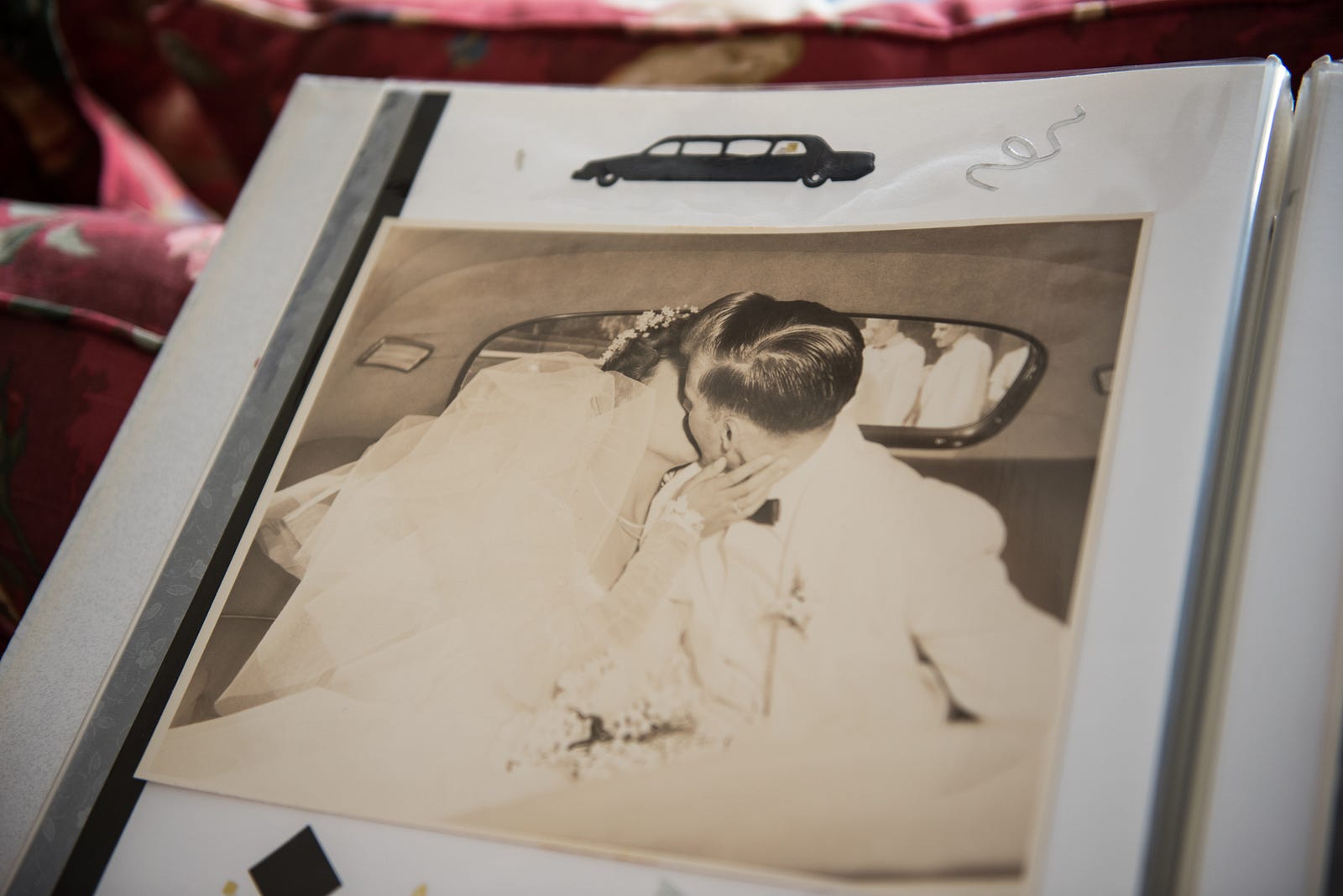
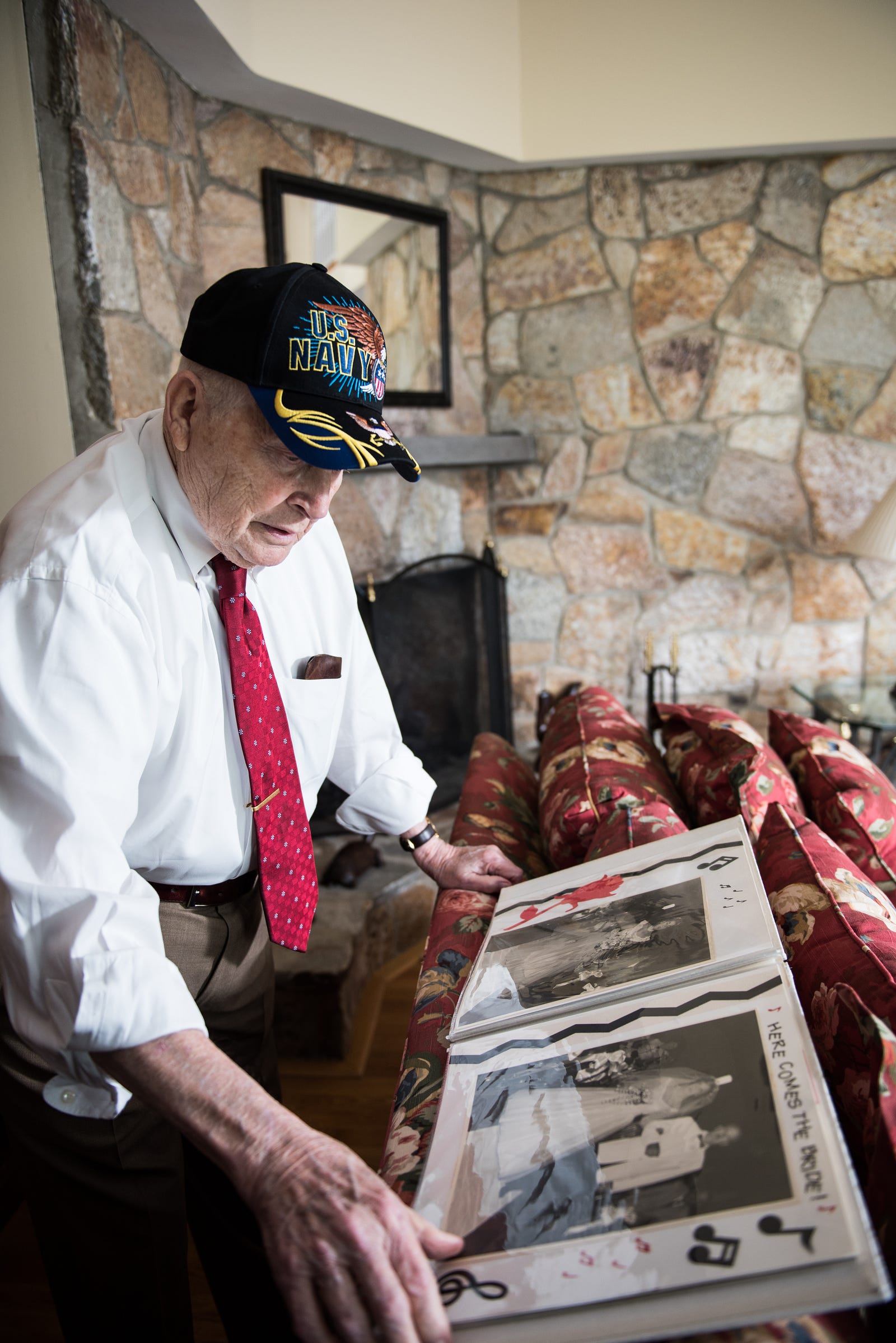

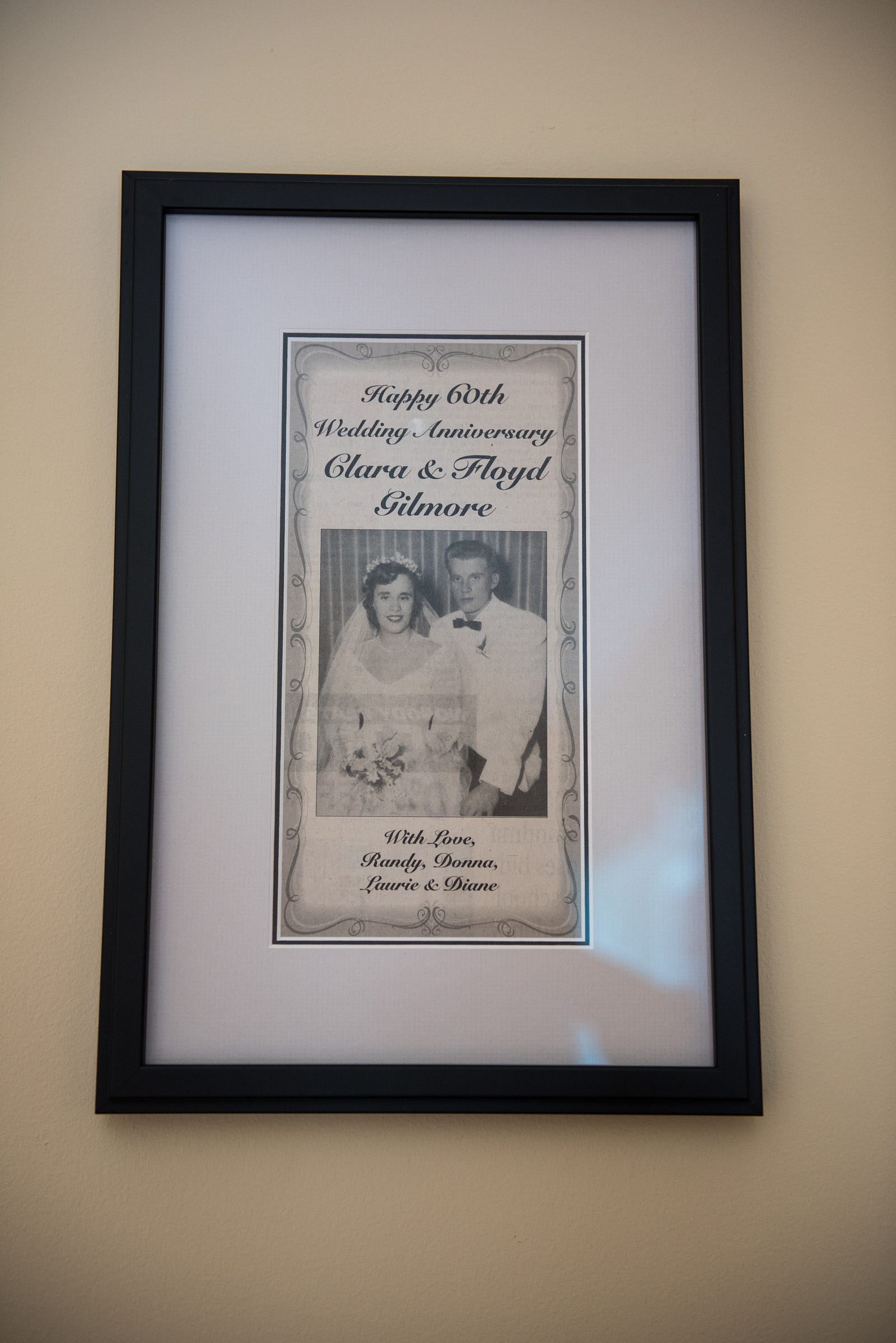
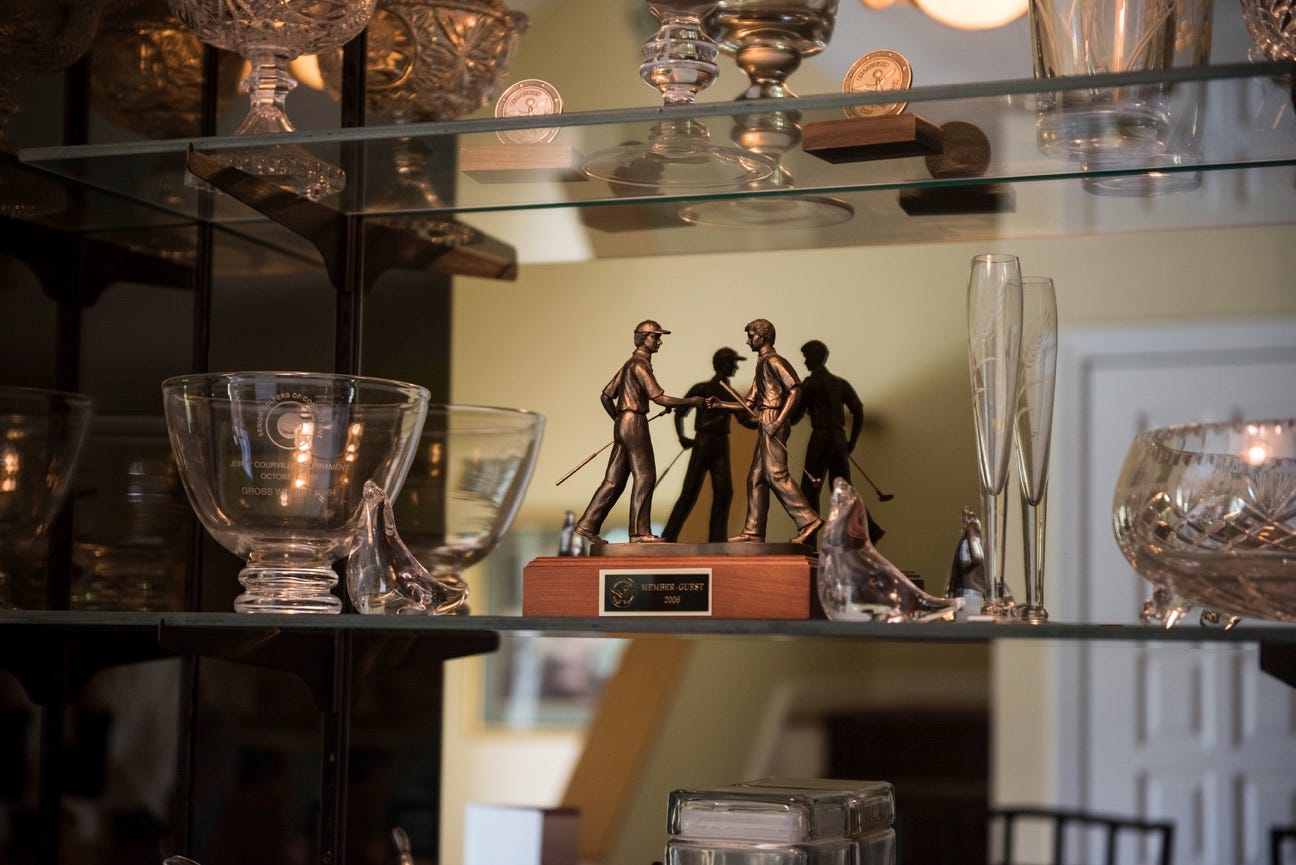
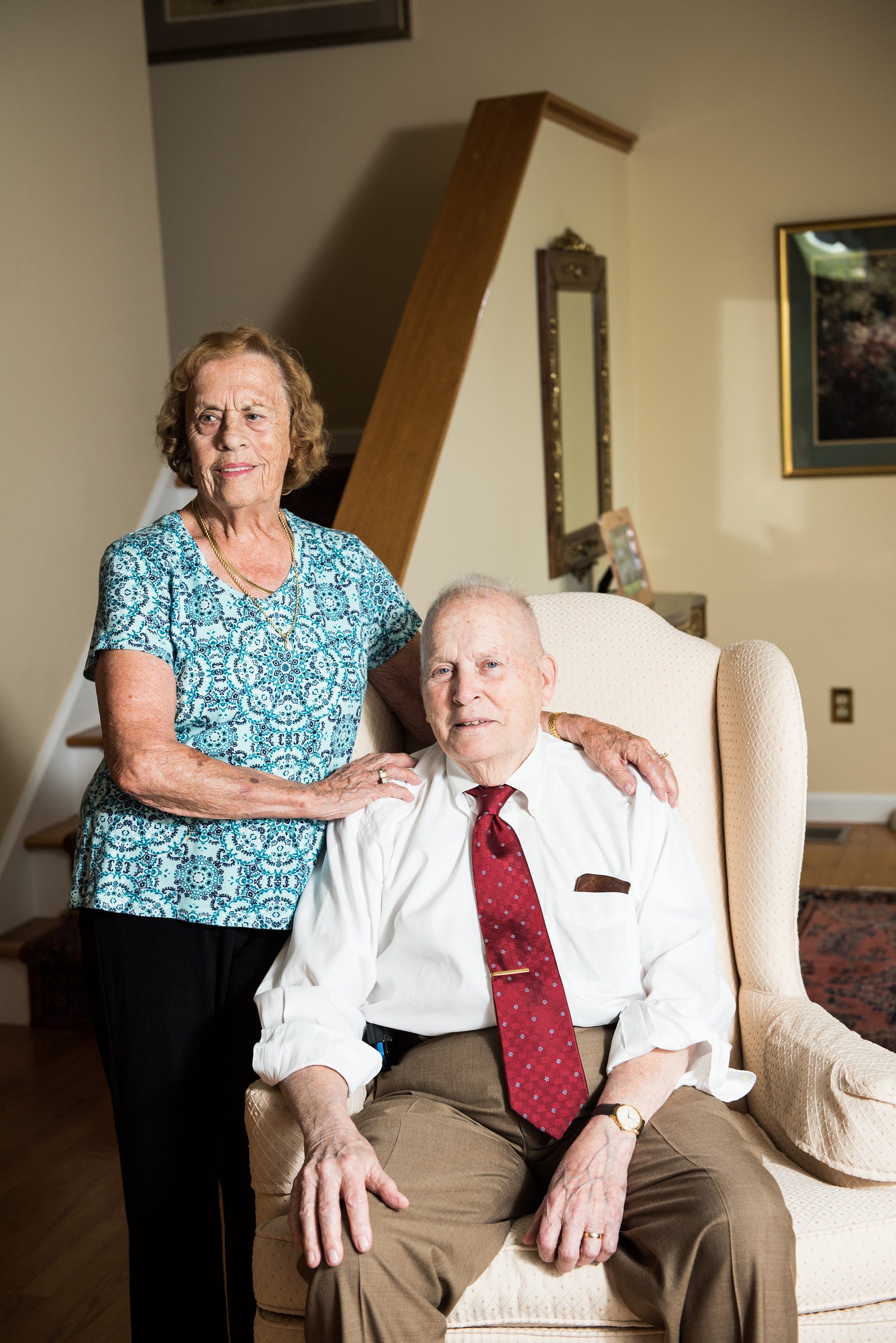
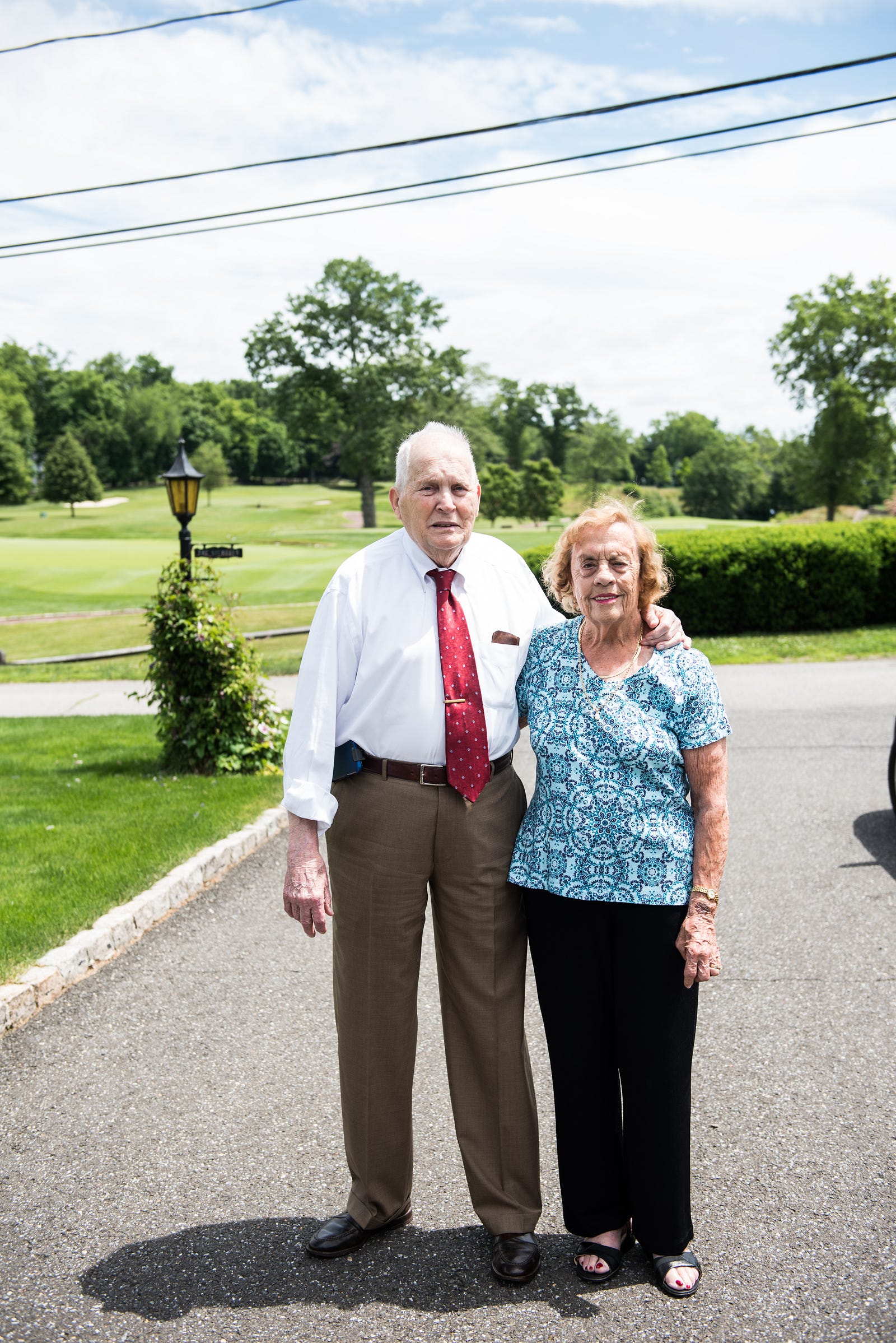
This interview has been edited and condensed for clarity by Allison Vicenzi. Photography by Veronica Green Photography.




